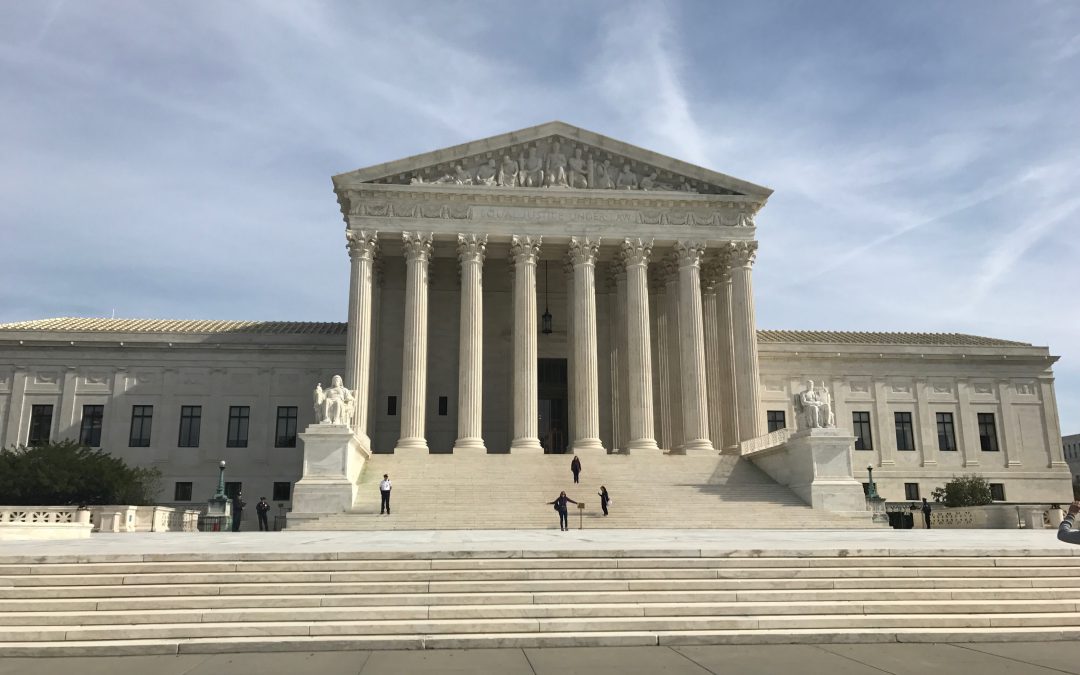WASHINGTON — Supreme Court justices on Wednesday heard arguments on whether the death penalty was incorrectly overturned for one of the Boston Marathon bombers, focusing most of their questions on the trial judge’s decision to exclude evidence about the other bomber’s possible involvement in other crimes.
On April 15, 2013, Dzhokhar Tsarnaev and his brother Tamerlan set off two bombs near the finish line of the annual Boston Marathon, killing three people and injuring approximately 264 others. Tamerlan was shot several times during their arrest, run over by his brother’s car and died later. Dzhokhar was convicted of 30 offenses, including three counts of using a weapon of mass destruction resulting in death. He was sentenced to death on six counts; the judge also imposed 20 life sentences.
Tsarnaev appealed the sentencing decision. In July 2020, the 1st U.S. Circuit Court of Appeals affirmed 27 of his convictions, reversed three, threw out his death penalty sentence and ordered that Tsarnaev continue serving a life sentence until a new penalty-phase trial is held.
The appeals court vacated the death sentence on two grounds – that the trial judge should have asked prospective jurors specifics about their news consumption about the case pretrial and that during the penalty phase, the trial judge should not have excluded evidence that Tamerlan Tsaraev allegedly was involved in a triple homicide two years before the bombing.
The 1st U.S. Circuit Court decision said that “omitted evidence might have tipped at least one juror’s decisional scale away from death.”
During trial, Dzhokhar Tsarnaev’s lawyers argued his brother served as a “radicalizing catalyst” who influenced Dzhokhar to participate in the bombings. The government said the brothers were equally culpable.
During Wednesday’s hearing, justices focused most of their questioning on why Tamerlan’s connection to the triple-homicide was not allowed in evidence during the trial and whether it mattered to imposition of the death penalty.
Chief Justice John Roberts noted that the information about Tamerlan’s alleged crime could not be verified since he was dead and Tamarlan’s friend who had said it happened also was dead.
Justice Amy Coney Barrett made the point that even if hearsay rules would not have excluded the information, a federal district judge still might have discretion to keep it away from the jury.
Justice Sonia Sotomayor said that “part of the problem is that the district court withheld information, and so the defense attorney could not proffer everything.”
Justice Elena Kagan pointed out other pieces of evidence about Tamerlan that were allowed in court.
“This court let in evidence about Tamerlan shouting at people, about Tamerlan assaulting a fellow student all because that showed what kind of a person Tamerlan was and what kind of an influence he might’ve had over his brother,” Kagan said. “And yet this court kept out evidence that Tamerlan led a crime that resulted in three murders?”
U.S. Deputy Solicitor General Eric Feigin said that the alleged crime was irrelevant to the defense’s argument because it was about a different crime in which Dzhokhar was not involved and would have distracted the jury.
“The jury was supposed to be focused on [Dzhokhar] not on something Tamerlan might have done two years earlier that was quite a different crime,” he said.
Ginger Anders, Tsarnaev’s attorney, argued the inclusion of this evidence was essential to the defense’s case.
“The theory is that Tamerlan influenced Dzhokhar. The theory is that Tamerlan indoctrinated Dzhokhar and Dzhokhar radicalized because of Tamerlan and Tamerlan was more likely to have led the bombings,” Anders said.
Barrett asked Feigin about the government’s goal for bringing the case to the high court in spite of the Biden administration’s opposition to federal executions.
“The administration continues to believe the jury imposed a sound verdict and that the Court of Appeals was wrong to upset that verdict,” Feigin answered.
According to Robert Durham, executive director at the Death Penalty Information Center, the Biden administration’s stance on the death penalty is largely irrelevant.
“If the (Supreme) Court’s decision [is] against Tsarnaev, this case will be in the courts for another decade at least,” long past when Biden will have left office, Durham said. “If the court decisions are in favor of Tsarnaev, the Department of Justice will have to make the decision of whether to seek the death penalty in a reset and revictimize the entire Boston community.”


